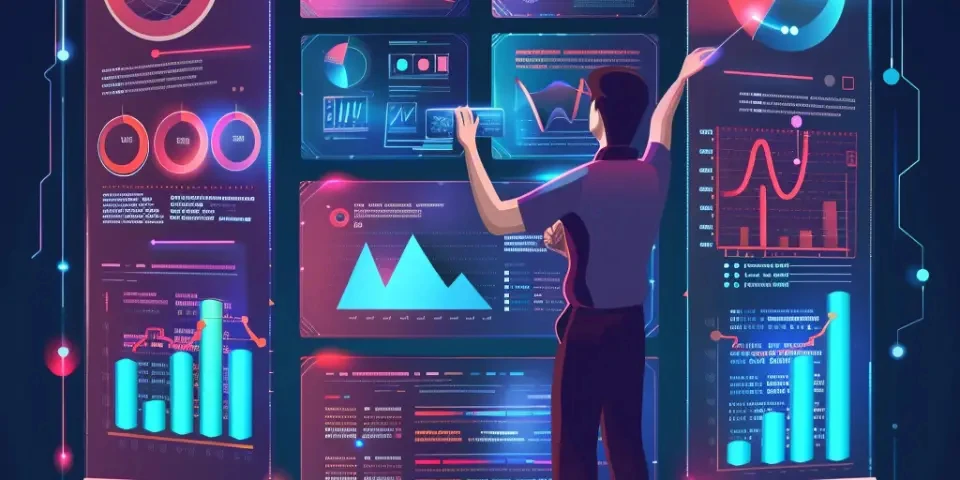Experience the Magic of AI-generated Poetry
Artificial Intelligence (AI) has been making remarkable strides in various fields, and one area where it has truly captivated audiences is in the realm of poetry. AI-generated poetry combines the power of language and machine learning algorithms to create captivating verses that evoke emotions and challenge our understanding of creativity. In this article, we will explore the enchanting world of AI-generated poetry and delve into its many fascinating aspects.
1. The Poetry of Algorithms
AI-generated poetry is the result of intricate algorithms that analyze vast amounts of text and learn to mimic patterns, styles, and even emotions. These algorithms, such as recurrent neural networks (RNNs), are trained on massive datasets of existing poetry to understand the nuances of language and structure. Through this process, the AI can generate original verses that reflect the essence of human expression.

2. Unleashing Creativity
AI-generated poetry challenges our conventional notions of creativity. Critics argue that since AI lacks consciousness, it cannot truly be considered creative. However, the beauty of AI-generated poetry lies in its ability to surprise and inspire. The AI can combine elements from different poems or even create entirely new metaphors, enabling us to witness unconventional forms of artistic expression.
3. Capturing Emotions
One of the most remarkable feats of AI-generated poetry is its capacity to reflect emotions. Whether it is sorrow, joy, or longing, the AI can capture and convey these feelings through carefully crafted verses. This ability to elicit emotional responses from readers underscores the power of AI in understanding the intricacies of human sentiment.
4. Bridging Past and Present
AI-generated poetry offers a unique opportunity to bridge the gap between traditional and contemporary forms of expression. By training on classic poets like Shakespeare or Dickinson, the AI learns the techniques and styles of the past. It can then fuse these traditional elements with modern language and themes, creating a mesmerizing blend of tradition and innovation.
5. Reimagining the Future
AI-generated poetry also raises questions about the future of creativity and authorship. As machines become more adept at generating content indistinguishable from human creation, it challenges us to redefine what it means to be an artist or poet. It prompts discussions on the roles of humans and AI in the creative process, and the potential collaboration between the two.
6. Exploring Boundaries
The nature of AI-generated poetry allows for the exploration of unconventional boundaries. AI can experiment with structures, mixing rhyme schemes or meter patterns that might not have been attempted traditionally. This experimentation pushes the boundaries of poetry, encouraging us to question and reimagine the possibilities of the art form.
7. Versatility and Accessibility
AI-generated poetry has the potential to make poetry more accessible to a wider audience. It can produce poems on demand, tailored to specific themes, occasions, or sentiments. This versatility ensures that poetry can be enjoyed by individuals who may not have previously engaged with the form, opening new doors for appreciation and creating a more inclusive literary landscape.
8. Ethical Considerations
As with any field involving AI, ethical considerations must be addressed in the development and usage of AI-generated poetry. Questions arise regarding plagiarism, intellectual property, and the potential misuse of AI for malicious purposes. It is essential to create guidelines and ethical frameworks that ensure responsible and respectful use of AI-generated poetry.
FAQs:
Q: Can AI-generated poetry truly match the depth and beauty of human-written poetry?
A: While AI-generated poetry can be incredibly impressive, it is essential to recognize that it is a product of algorithms. While it may evoke emotions and exhibit creativity, the depth and personal experiences reflected in human-written poetry still hold a unique place in the artistic world.
Q: Will AI-generated poetry replace human poets?
A: The goal of AI-generated poetry is not to replace human poets but to complement and inspire them. AI can offer new perspectives and push creative boundaries, but it lacks the human touch and life experiences that shape deeply personal and profound poetry.
Q: Are there any notable examples of AI-generated poetry?
A: Yes, there are several celebrated examples of AI-generated poetry. Notable projects include "The Seekers" by Bot or Not, "Sunspring" by Benjamin, and "Not a soul" by Skylar Tibbits. These examples highlight the capacity of AI to produce captivating and thought-provoking poems.
Conclusion
AI-generated poetry presents an exciting intersection of technology and art, offering a fresh perspective on the boundaries of creativity. It challenges our perceptions of what constitutes poetry and provides new opportunities for both poets and readers. As AI continues to advance, it is an enchanting time to immerse ourselves in the magic of AI-generated poetry.
References:
1. Harrison, D. (2017). Creativity and AI: The Next Revolution in the Age of Intelligent Machines. Springer.
2. Gervas, P. (2020). Deep Learning: A Critical Approach to AI in the Arts. AI & Society, 35(2), 265-272.
Explore your companion in WeMate